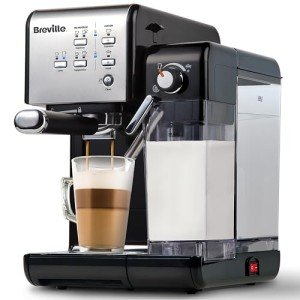Searching For Inspiration? Check Out Energy-Efficient Espresso Machines
Energy-Efficient Espresso Machines: A Comprehensive Guide
In the world of coffee lovers, espresso machines are frequently regarded as important devices for brewing rich, fragrant coffee. However, the energy consumption related to these machines can lead to increased utility bills and environmental issues. As advice here end up being more eco-conscious, energy-efficient espresso machines have actually emerged as a popular choice. This post aims to check out the functions, benefits, and options offered in energy-efficient espresso machines, assisting coffee lovers make notified options.
What Makes an Espresso Machine Energy-Efficient?
Energy-efficient espresso machines are designed to reduce energy intake while preserving ideal performance. Numerous functions add to the energy effectiveness of these machines:
Insulation: High-quality insulation assists maintain heat, minimizing the energy needed to preserve optimal brewing temperature levels.
Smart Technology: Many modern machines are geared up with programmable settings that enable users to set up brewing times and change to standby mode when not in use.
Quick Heat-up Time: Energy-efficient espresso machines frequently use sophisticated heating technologies, such as thermoblocks or PID controllers, to heat water rapidly.
Low Wattage: Machines that operate at lower wattages consume less energy overall, making them more efficient.
Vehicle Shut-off: Automatic shut-off includes make sure that the machine turns off after a particular period of inactivity, further lowering energy waste.
Benefits of Energy-Efficient Espresso Machines
Purchasing an energy-efficient espresso machine can use a number of benefits:
Cost Savings: Over time, lower energy consumption can result in minimized electrical energy expenses.
Environmental Impact: Using less energy lowers carbon footprints, making these machines a more sustainable choice for environmentally mindful customers.
Enhanced Performance: Many energy-efficient models likewise provide remarkable brewing innovations, resulting in better-tasting espresso.
Durability: Typically, energy-efficient machines are constructed with high-quality elements, resulting in greater durability.
Features to Consider
When selecting an energy-efficient espresso machine, several functions need to be taken into account:
- Type of Machine: Options include manual, semi-automatic, and completely automatic designs, each with differing degrees of user control and automation.
- Brew Quality: Look for machines that utilize high-quality brewing systems to ensure optimal flavor extraction.
- Maintenance: Some machines have self-cleaning features that can conserve energy and effort in upkeep.
- Capacity: Depending on individual or household size, machine capacity can affect energy consumption, with bigger machines frequently needing more power.
Popular Energy-Efficient Espresso Machines
The marketplace offers a variety of energy-efficient espresso machines dealing with various needs and choices. Below are some significant models:
Brand
Model
Key Features
Energy Consumption
Breville
Barista Express
Integrated grinder, PID temperature level control, fast heat-up.
Low
DeLonghi
EC155
Compact size, easy to use, durable build.
Moderate
Rancilio
Silvia
Durable design, exceptional temperature level stability, and has a low environmental effect.
Moderate
Gaggia
Classic
Trusted manual operation, durable brass elements, and efficient steaming ability.
Low
Jura
E8
Fully automatic, smart functions, and a removable brew group for easy cleansing.
Low
Tips for Optimal Energy Efficiency
Aside from picking an energy-efficient model, consumers can adopt a number of practices to take full advantage of energy effectiveness:
- Preheat: If your machine has a pre-heating function, use it to make sure that the optimum temperature level is reached rapidly before developing.
- Switch off After Use: Always turn off the machine after brewing or use machines with auto shut-off features.
- Routine Maintenance: Keep the machine properly maintained to ensure it runs efficiently and efficiently.
Frequently Asked Questions About Energy-Efficient Espresso Machines
1. Are energy-efficient espresso machines more costly?
While the preliminary financial investment might be higher for energy-efficient designs, the long-term savings on electricity bills can balance out the initial cost. Additionally, numerous energy-efficient machines come with sophisticated functions that improve the brewing experience.
2. How do I understand if an espresso machine is energy-efficient?
Search for signs such as Energy Star accreditation, user reviews, and specs regarding wattage and heat-up time. Machines with specific features focused on reducing energy intake are usually created for better performance.
3. Can I use an energy-efficient espresso machine for other coffee styles?
Numerous energy-efficient espresso machines provide adaptability, allowing users to brew various coffee designs beyond espresso, such as lattes and coffees, by integrating steaming abilities.
4. Do energy-efficient designs compromise quality for effectiveness?
Not necessarily. Numerous energy-efficient espresso machines are geared up with high-quality brewing innovation that can enhance taste extraction while decreasing energy intake.
5. What upkeep is required for energy-efficient espresso machines?
Routine maintenance involves cleaning up the machine, descaling when essential, and regularly examining seals and gaskets to guarantee ideal performance and energy efficiency.
Energy-efficient espresso machines represent an ideal blend of efficiency, cost savings, and ecological responsibility. By thinking about various features, benefits, and brands, customers can select a model that matches their distinct choices while contributing favorably to the environment. As the trend towards sustainable living grows, the appeal of energy-efficient home appliances, consisting of espresso machines, is most likely to continue its upward trajectory, offering coffee fans a guilt-free way to enjoy their day-to-day dosage of espresso.
